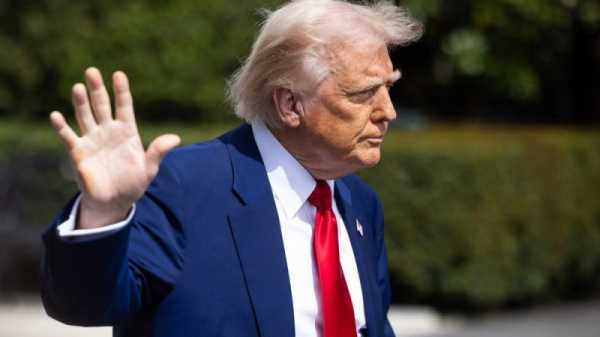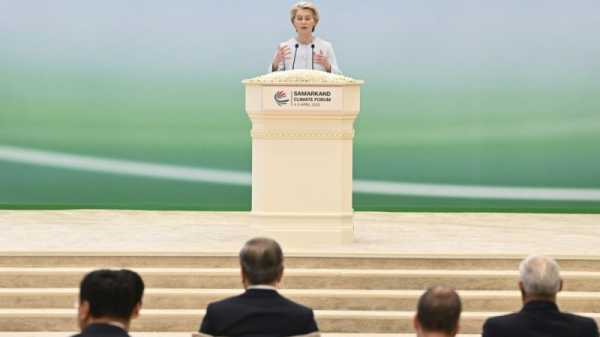
Low taxes, the opacity of the banking sector and scandals in Europe’s microstates have brought the EU headaches for decades, but the European Commission says it is working with these countries to find a solution.
Europe faces threats to the rule of law in the finance sector, according to a report examining three European microstates: Andorra, Liechtenstein and Monaco.
The study by Gérard Vespierre, editor of Le Monde Décrypté, was presented at a conference in Brussels on Tuesday (30 November) in partnership with The Bridge Tank and EURACTIV Bulgaria.
“The Commission is addressing this, a representative of the EU executive who asked not to be named, said at the conference. Monaco, Andorra and Liechtenstein are essential partners of the EU, and have shown readiness to negotiate with the EU institutions, he added.
Hilda Sandberg, part of the permanent representation of Sweden to the EU announced that Stockholm will very closely follow the issue of financial regulations in microstates. Sweden will take over the rotating presidency of the EU Council for the first half of 2023.
The liquidation of the Andorran bank BPA
One of the standout issues highlighted by Vespierre’s report was the liquidation of the Andorran bank BPA in 2015.
The bank was dissolved following the publication of a notice by the US Treasury Financial Crimes Enforcement Network (FinCEN) which stated that there was a risk BPA had carried out money laundering activities for Russian, Chinese and Venezuelan nationals and members of the Mexican Sinaloa cartel.
Within hours, Spanish regulators and depositors liquidated the bank.
However, one year on it emerged that FinCEN acted without sufficient evidence. The case raised questions about the opacity of the banking sector in the small country, as well as the extraterritorial application of US laws in Europe.

How the US Treasury sank a small European bank
European companies have paid heavily for the US self-assigned right to adjudicate on a global scale on the activities of non-US businesses and individuals. The disturbing case of Banca Privada d’Andorra offers yet another striking example, writes Dick Roche.
Rule of law and sovereignty key
“The first problem with the microstates is the scale. The smaller is closer. They have the small structure between the government and the judiciary system, and close relationships between the banking and financial system”, Vespierre commented, illustrating the fact that the same people run the state and business in these small countries.
For instance, the report recounts how Russian billionaire Dmitry Rybolovlev exploited Monaco’s close-knit community of elites to vilify Swiss art dealer, Yves Bouvier.
“The key word is ‘rule of law’. This is in the heart of our democratic system,” said Vespierre. The EU should modify its relations with these countries, he said, to motivate them to sign on to existing conventions for the transparency of financial regulations and money laundering.
Another panellist, former Irish minister for European Affairs Dick Roche, agreed, however, he highlighted the question of ‘whose law’, in reference to the US actions toward the European bank.
FinCEN’s evidence “would not hold up in a small Irish court”, he said.
“We have to define what law rules in Europe. We must define our relations with these small countries, they are European, they are historically part of us. And they have their own sovereignty they need to protect,” added Roche.
A need for transparency
Niels Fuglsang (S&D, Denmark), the European Parliament’s rapporteur for the Pandora paper scandal, said that one of the problems is that the EU doesn’t have transparency about ownership in tax havens.
Fuglsang, who called the report “fascinating”, also said that it “deserves a broad audience” and that it should “push the debate in Europe”.
“I was recently in Luxembourg and I understood what you were talking about. Everyone knew everyone else. It is a rather closed system”, he said, emphasised that in such an environment, whistleblowers are particularly important.
“Are they protected enough? Not only the internal ones, but also the external ones, the journalists. More transparency in this beneficial ownership is better,” the MEP said, adding that microstates specialise in financial services like Germany specialises in car manufacturing.
“In the case of Germany, we know how many cars are produced, but these small countries have the art of secrecy and that is one of their strengths. We should be decreasing the level of secrecy in their financial sector,” Vespierre agreed.
Roche insisted that the regulations are not a question of size, but a question of transparency.
Frank Schwalba-Hoth from the German Greens said that he did not want microstates to be stigmatised. According to him, the EU must do more to improve contact, including by holding regular summits with the leaders of these countries.
“These are our permanent neighbours and all the time we have all these problems with them – Schengen, visa, nationality, golden passports, banking. If I were a diplomat from these countries, I would be totally disappointed because they don’t take me seriously and then blame me for the banking,” he said.
Diplomatic representatives of Andorra, Monaco and Liechtenstein were present in the room but did not ask for the floor.
On the same day, the commission issued this press release following of meeting between Commission Vice-President Šefčovič and Xavier Espot, Head of Government of Andorra, in which it is announced that the two sides have agreed to further accelerate the pace of their talks, including by holding six sessions between January and July next year.
[Edited by Nathalie Weatherald]
Source: euractiv.com



